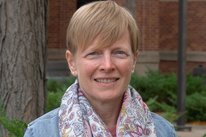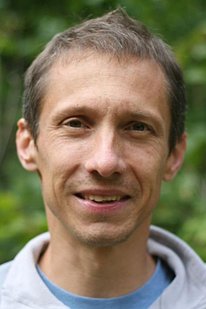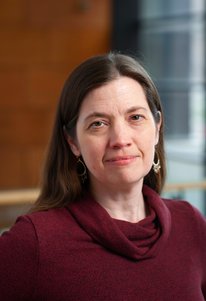Abstract
The Minneapolis-St. Paul Urban Long Term Ecological Research project (MSP LTER) is an NSF-funded project exploring interactions between people and nature in the Twin Cities to understand how urban ecosystems respond to rapid environmental and social change and inform approaches to addressing environmental inequities. After introducing the broader suite of MSP LTER research questions related to pollinator communities, urban forests, and aquatic ecosystems, this presentation will highlight research focused on urban watersheds and surface waters. One of these projects addresses the role of urban trees in the water cycle. Specifically, by instrumenting trees across multiple St. Paul parks, we have quantified how trees take up water from the soil and send it back to the atmosphere via transpiration and how trees alter the amount and chemistry of precipitation as it falls through their canopy. This work shows that urban trees can export nutrients in throughfall at concentrations 2.7 times (for nitrate) and ~ 8-11 times higher (for soluble reactive phosphorus) compared to open precipitation, and that nutrient dynamics depend on season, canopy condition, and water use, with implications for management strategies to increase the net benefits of urban trees. A second project quantifies the essential functions provided by stormwater ponds to manage impacts of urban stormwater runoff. This work shows strong effects of vegetation, including trees, tiny free-floating plants, and submerged macrophytes, on the dynamics of pond systems. Integration of study of urban ponds into MSP’s long-term ecological research agenda is bringing ecological and biogeochemical perspectives into water quality research and yielding insights into how pond functions change over time and in response to diverse management approaches. We highlight MSP LTER’s role in organizing and disseminating data and information collected by diverse organizations to generate novel insights into the functioning of urban watersheds and surface waters.

Dr. Sarah Hobbie (left) is Regents Professor and Distinguished McKnight University Professor in the Dept of Ecology, Evolution, and Behavior. Her research addresses the influence of changes in atmospheric composition, climate, land use, and plant species composition on communities and ecosystems, and the effects of urbanization on biodiversity and water quality. She is currently the Director of the new Minneapolis-St. Paul Metropolitan Area Urban Long Term Ecological Research program.

Dr. Xue Feng (right) is a McKnight Land-Grant Associate Professor in the Department of Civil, Environmental, and Geo- Engineering and an affiliate faculty at the Saint Anthony Falls Laboratory at the University of Minnesota. Her research aims to uncover how water shapes vegetation response to climate change and using this knowledge to advance watershed and Earth system modeling. She is a recipient of the NOAA Climate and Global Change Postdoctoral Fellowship and a National Science Foundation CAREER award. She is a project co-lead with the Minneapolis-St. Paul Metropolitan Area Urban Long Term Ecological Research program, studying how urban trees impact the local microclimate and mediate stormwater quantity and quality.

Dr. Jacques Finlay (left) is a Professor in the Department of Ecology, Evolution and Behavior at the University of Minnesota. His group does research in wetlands, lakes, ponds and rivers, examining both global changes and basic ecology of freshwater ecosystems. He is a project co-lead with the Minneapolis-St. Paul Metropolitan Area Urban Long Term Ecological Research program, which includes a large focus on urban watersheds and lakes.

Dr. Diana Karwan (right) is an Associate Professor in the Department of Forest Resources and Co-Director of Graduate Studies for the Water Resources Science program at the University of Minnesota. Her research examines how landscapes, land use, and vegetation relate to surface water quantity and quality. She is a recipient a National Science Foundation Postdoctoral Fellowship. He is a project co-lead with the Minneapolis-St. Paul Metropolitan Area Urban Long Term Ecological Research program, studying how urban trees interact with precipitation to influence runoff and stormwater chemistry.